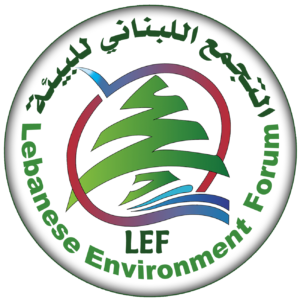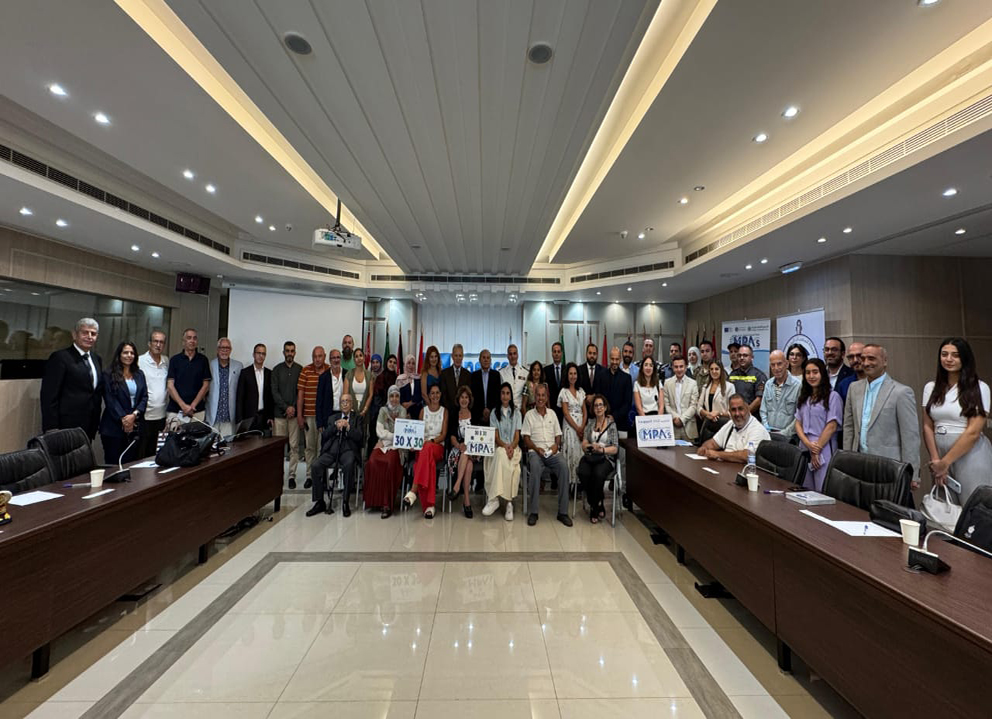As part of the participatory activities of the Marine Protected Areas (MPA) Network project — implemented by the Lebanese Environment Forum (LEF) in partnership with the University of Balamand and with the support of the European Union — LEF, in collaboration with the UNESCO Regional Office in Beirut, organized a consultative workshop dedicated to discussing the proposed legal framework for the establishment and management of an effective national network of marine protected areas.
The workshop brought together representatives from government ministries, Parliament, municipalities, academia, international organizations, and environmental NGOs, with the goal of deepening the national dialogue on the proposed legal framework and promoting consensus on sustainable governance mechanisms for Lebanon’s marine environment.
Opening Session
The session opened with a speech by Mr. Cyril Dewaleyne, Deputy Head of Cooperation at the EU Delegation in Lebanon, who stated that the draft decree under discussion marks a pivotal milestone in marine environmental protection. It seeks to bring together previously fragmented initiatives into a unified national network of marine protected areas founded on sound scientific principles.
Dewaleyne emphasized that the project introduces a new model of governance that connects the Ministry of Environment with local committees, while also ensuring mechanisms for oversight and financing that sustain long-term operations. He stressed that laws and committees alone are not enough — success depends on close cooperation among all stakeholders: fishermen, local communities, municipalities, scientists, civil society, and the government. He reaffirmed the EU’s commitment to supporting Lebanon in sustainably managing its natural resources, thereby enhancing livelihoods and creating long-term job opportunities.
Project Progress and Key Milestones
Eng. Malek Ghandour, President of the Lebanese Environment Forum, gave a comprehensive overview of the project’s progress since its inception, highlighting the main milestones that led to this important consultative event — a key step toward enriching the national dialogue around the legal framework of the MPA network.
Ghandour noted that the project has enjoyed continuous practical support from several ministries — including Environment, Agriculture, Economy, Energy, Information, Defense, and Public Works — which has facilitated its implementation. He also praised the constructive collaboration with Parliament’s Environment and Agriculture Committees to accelerate the adoption of legislation related to marine protected areas, fisheries, and integrated coastal zone management (ICZM).
He announced that several municipalities — including Damour, Nahr Ibrahim, and Saida, as well as the Governorate of Beirut and the Litani River Authority — have expressed readiness to declare marine conservation zones within their jurisdictions. Ghandour further emphasized the key role of the MPA Forum as an effective platform supporting the continuity of the initiative and the completion of the national marine network.
In the same context, Ms. Rouane Al-Jammal presented the adopted standards for the marine protected areas network, while Dr. Manal Nader, Director of the Institute of Environmental Studies at the University of Balamand, outlined the rationale behind the proposed legal text and highlighted the importance of a comprehensive legal framework for effective and integrated management.
Legal Presentation
The second session focused on presenting the draft legal proposal. Lawyer Chokri Haddad, the project’s legal advisor, provided a detailed explanation of the different articles of the draft law, which aims to establish and manage a national network of marine protected areas along the Lebanese coast.
He explained that the network would encompass marine reserves, “Hima” areas, key conservation sites, river estuaries, and designated deep-sea zones, defining the roles of ministries, official administrations, municipalities, reserve committees, and environmental NGOs within an integrated legal framework.
This legislative initiative aligns with Lebanon’s commitment to achieving the global 30×30 target, which seeks to protect 30% of terrestrial and marine environments by 2030.
The session featured rich discussions among participants. MP Ayoub Hmayed expressed concern over the abundance of environmental laws contrasted with weak enforcement, asserting that adopting a law — rather than a decree — is the most effective way to ensure real protection. He also stressed the need to classify marine areas according to pollution levels, highlighting the persistent issue of wastewater management, as many treatment plants exist but are non-operational. Hmayed noted that the current fisheries law already includes several relevant provisions addressed by the new proposal.
Ms. Darine Al-Moulla questioned the absence of the Ministry of Tourism’s role in the process, noting that coordination among ministries remains weak, compounded by a shortage of qualified human resources to support implementation.
Meanwhile, Mr. Mohammad Jomaa emphasized that responsibility lies not only with the Ministry of Environment but also with the Council of Ministers, which must ensure the law’s adoption and follow-up. Mr. Tony Nakkour raised concerns about waste management, calling for an on-the-ground presence of Ministry of Environment representatives to ensure effective field implementation.
Consensus on Adopting the Law
At the conclusion of the workshop, participants unanimously underscored the importance of adopting a comprehensive national law to serve as an effective reference framework for managing the marine protected areas network. They emphasized that the law should build upon existing national plans and translate the ongoing collaboration between the Ministry of Environment and relevant institutions into concrete actions, ensuring the participation of local authorities and civil society in the process.
This anticipated law represents a significant step forward toward establishing sustainable management of Lebanon’s marine resources — in line with international environmental commitments — and will contribute to enhancing the resilience and prosperity of Lebanese coastal communities.


